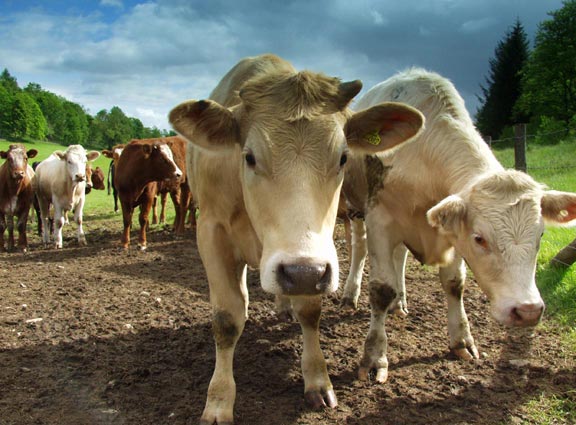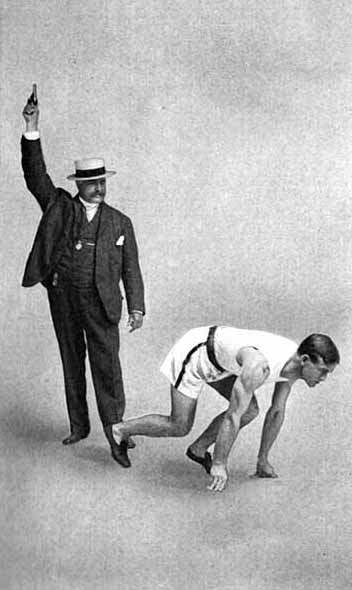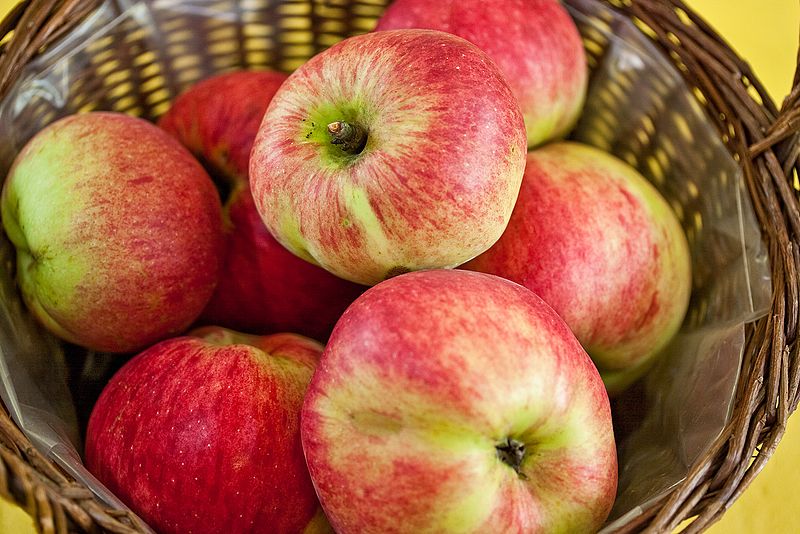Tightening one's belt
This term, while it may seem to have something to do with losing weight, actually refers to having to live more economically due to a reduced income. The tightening of one's belt (from losing weight as a result of having less food to eat) is therefore one possible consequence of living on less money, but not by any means the objective! Perhaps in these days of cheap and plentiful food it is harder to remember that those who had enough to eat every day were once regarded as fortunate...
Apertando o cinto de alguém
Esse termo, embora pareça ser relacionado à perda de peso, na verdade se refere a viver economicamente devido a baixa renda. O aperto de cinto (da perda de peso relacionado a menos comida para comer) é uma consequência possível de se viver com menos dinheiro, mas não é o objetivo! Talvez por haver comida abundante e barata hoje em dia é mais difícil se lembrar dos tempos nos quais quem tinha comida suficiente todos os dias eram sortudos...
Mad as a hatter
Irrational, mentally disturbed, and generally crazy, especially in an eccentric, extroverted way. This phrase is thought to come from the use of mercury by traditional hat-makers, or "hatters", which would often poison them over a long period of exposure, leading to sometimes quite serious neurological symptoms. Many people are familiar with the the "Mad Hatter" from the "Alice in Wonderland" story and its sequel, "Alice through the Looking Glass", especially the famous scene where the eccentric Hatter speaks and acts erratically at the Tea Party. Interestingly, though, and contrary to what many people think, the character was never referred to as "The Mad Hatter", but as simply "The Hatter" in the first story and "Hatta" in the second.
Irracional, perturbado mentalmente, e geralmente doido, especialmente de uma maneira excêntrica e extrovertida. Essa frase deve ter vindo do uso de mercúrio pelos fazedores de chapeis tradicionais, ou chapeleiros, que frequentemente os envenenavam após um longo período de exposição, levando a sintomas neurológicos sérios. Muitas pessoas sabem do chapeleiro maluco da história Alice no País das Maravilhas e Alice Através do Espelho, especialmente na cena onde o excêntrico Chapeleiro Doido fala e atua sem sentido na festa do chá. Interessante, porém, e contrariamente do que muitas pessoas acham, o personagem nunca foi chamado de "Chapeleiro Doido", mas simplesmente como "o Chapeleiro" (The Hatter) na primeira estória e "Hatta" na segunda.
Belt and Braces (mainly British)
When a method is used for doing something which makes sure the objective is achieved by doing it in more than one way (so that if one way fails, the other still has a chance of succeeding), this is known as "Belt and Braces", a "Belt and Braces approach", etc. It is commonly associated with being exceptionally cautious or obsessively, perhaps needlessly thorough, and comes from the idea of ensuring that trousers will stay up by using both a belt and braces at the same time (in British English, "Braces" is the preferred term for trouser [pants] suspenders) so that one method will still hold them up if the other fails.
"Granny had a belt and braces approach to doing her laundry; she would first wash it by hand, then afterwards wash it again by machine, just to make sure it really was clean!"
Cinto e suspensório (majoritariamente Britânico)
Quando um método é usado para fazer algo que garanta que o objetivo seja alcançado, fazendo algo de várias maneiras (para que se uma falhar, a outra funcionará), é conhecido como "cinto e suspensório" ou "o método cinto e suspensório". É comumente visto como um método bem cuidadoso ou obssessivo, ou talvez excessivamente meticuloso, e vem com a ideia de garantir que as calças não caiam pelo uso de um cinto e de suspensórios. Se um falhar, o outro deverá funcionar.
"A vovó tinha um método cinto e suspensórios para lavar suas roupas; primeiro lavava a mão e depois de novo na máquina, para ter certeza que estavam limpas!"
Handle/treat with kid gloves
To treat a person/situation, etc, with extreme care, as though expecting problems or dangers, and through extreme caution trying to avoid making the kind of mistake that would provoke them. This term is often used in practice to refer to a situation where in dealing with a difficult person or group of people, excellent interpersonal and diplomacy skills need to be utilized in order not to provoke a bad reaction. Kid gloves, historically speaking, are very thin, delicate gloves made from the skin of a young goat (kid), as were once commonly worn by wealthy and aristocratic people, and evidently an item that was best handled with them would be very delicate and easily damaged, therefore leading to the modern figurative use of the term. Many modern English users have no idea what this phrase is actually intended to mean, despite its common figurative use, and wrongly suppose it to relate to handling something as though it was a small child (also "kid") with gloves, or even suppose the term to be "kit gloves", and write and pronounce it thus. (This misuse is not uncommon among American speakers.)
"You know the boss doesn't like bad news, so make sure to use kid gloves when you tell him about this mistake."
Manuseie/trate com luvas cabritos
Tratar uma pessoa ou situação com extremo cuidado, como se estivesse esperando problemas ou perigos, e com cuidado extremo tentar evitar erros que os provocariam. Esse termo é usado na prática para se referir a uma situação que lida com um grupo de pessoas ou uma pessoa difícil, e qualidades diplomáticas e interpessoas excelentes são necessárias para não provocar uma má reação. Luvas de cabritos, historicamente falando, eram muito finas e delicadas e feitas de pele de cabrito, e eram comumente usadas por pelas pessoas ricas da aristocracia, e claramente, algo que seria melhor manuseado com elas seria bem delicado e fácil de danificar, dessa forma, levando ao uso figurativo moderno. Muitos usuários do Inglês moderno não têm ideia do que essa frase significaria, apesar do uso comum, e erroneamente acham que se refere a pequenas crianças ("kids") com luvas, ou mesmo acham que se trata do termo "kit gloves", e escrevem e pronunciam assim. (Essa ultima maneira não é incomum para os falantes de inglês americano.)
"Você sabe que o chefe não gosta de notícias ruins, então tenha certeza de usar luvas de cabrito quando falar para ele sobre esse erro."
"Você sabe que o chefe não gosta de notícias ruins, então tenha certeza de usar luvas de cabrito quando falar para ele sobre esse erro."
Eat one's [own] hat
This expression is used to express either disbelief that an unlikely event will happen in future, or (less often) incredulity that something thought to be unlikely has actually happened. The idea is presumably that for someone to eat their own hat would be very unlikely (and not at all desirable to the person), and so it became customary to use this term ironically, as an expression of the speaker's confidence that they would not have to eat their own hat, because there was no real chance of the thing that would cause them to eat it coming to pass.
"The reds didn't win more than three games in one year since 1973. If they win the league this season, I'll eat my hat."
"Joe was always saying that the reds would never win the league. Now that they've won, he will be eating his hat."
Comer o próprio chapéu
Essa expressão é usada para indicar descrença quanto a um acontecimento futuro improvável, ou (menos frequentemente) ou incredulidade quanto a algo improvável que já aconteceu. A ideia é presumivelmente que para alguém comer o próprio chapéu seria bastante difícil (e não desejável à pessoa), então o uso desse termo se tornou costume, como uma expressão de certeza que não irá precisar chegar a comer o próprio chapéu, porque não há chance real da coisa mencionada ter acontecido.
"Os vermelhos não venceram mais do que três jogos em um ano desde 1973. Se ganharem o campeonato essa estação, comerei meu chapéu."
"Joe sempre dizia que os vermelhos nunca ganhariam o campeonado. Agora que eles ganharam, ele comerá seu chapéu."
Comer o próprio chapéu
Essa expressão é usada para indicar descrença quanto a um acontecimento futuro improvável, ou (menos frequentemente) ou incredulidade quanto a algo improvável que já aconteceu. A ideia é presumivelmente que para alguém comer o próprio chapéu seria bastante difícil (e não desejável à pessoa), então o uso desse termo se tornou costume, como uma expressão de certeza que não irá precisar chegar a comer o próprio chapéu, porque não há chance real da coisa mencionada ter acontecido.
"Os vermelhos não venceram mais do que três jogos em um ano desde 1973. Se ganharem o campeonato essa estação, comerei meu chapéu."
"Joe sempre dizia que os vermelhos nunca ganhariam o campeonado. Agora que eles ganharam, ele comerá seu chapéu."
Old school tie (mostly British)
This term is commonly used for anything relating to the informal network of friendship, mutual support, and shared attitudes, existing among the people who were once students at certain elite private schools, particularly (though not only) those in the UK. The term itself is a metonymy [link] referring to the unique (neck) ties worn by the students at such schools, which are thought to symbolize their preferred social group in later life, as it distinguished their student group when young.
"Don't expect to ever get promoted to the board of this company, everyone on it wears the old school tie."
Gravata velha de escola (majoritariamente britânico)
Esse termo é comumente usado para qualquer coisa relacionada à rede informal de amizade, suporte mútuo, e atitudes compartilhadas, que existe entre as pessoas que eram uma vez estudantes em certos colégios particulares de elite, particularmente (mas não só) os do Reino Unido. O termo é uma metonímia (ligação) que se refere às gravatas usadas pelos estudantes em tais colégios, que são consideradas como símbolo do grupo social preferido mais tarde na vida, já que diferenciava o grupo deles quando jovens.
"Não espere ser promovido à direção dessa empresa, todo mundo lá usa uma gravata velha de escola."
Gravata velha de escola (majoritariamente britânico)
Esse termo é comumente usado para qualquer coisa relacionada à rede informal de amizade, suporte mútuo, e atitudes compartilhadas, que existe entre as pessoas que eram uma vez estudantes em certos colégios particulares de elite, particularmente (mas não só) os do Reino Unido. O termo é uma metonímia (ligação) que se refere às gravatas usadas pelos estudantes em tais colégios, que são consideradas como símbolo do grupo social preferido mais tarde na vida, já que diferenciava o grupo deles quando jovens.
"Não espere ser promovido à direção dessa empresa, todo mundo lá usa uma gravata velha de escola."
Take one's hat off to [someone]
When someone, figuratively takes their hat off to another, they are expressing feelings of respect or admiration, or praising them. This term probably comes from the ancient tradition of "doffing" (ie taking off) headgear in the presence of social superiors, though it nowadays does not normally imply subservience, as it once did.
"You fixed the problem quicker than I would ever have thought possible - I take my hat off to you!"
Tirar o chapéu para (alguém)
Quando alguém figurativamente tira o chapéu para outra pessoa, estão expressando sentimentos de respeito ou admiração, ou os elogiando. Esse termo provavelmente vem da tradição antiga de "doffing" (isto é, tirar) o que estiver na cabeça na presença de pessoas socialmente superiores, emboja hoje em dia não mais represente submissão, como no passado.
"Você consertou o problema mais rápido do que eu jamais imaginei possível; eu tiro meu chapéu para você!"
Tirar o chapéu para (alguém)
Quando alguém figurativamente tira o chapéu para outra pessoa, estão expressando sentimentos de respeito ou admiração, ou os elogiando. Esse termo provavelmente vem da tradição antiga de "doffing" (isto é, tirar) o que estiver na cabeça na presença de pessoas socialmente superiores, emboja hoje em dia não mais represente submissão, como no passado.
"Você consertou o problema mais rápido do que eu jamais imaginei possível; eu tiro meu chapéu para você!"
Throw in the towel
To give up on whatever was being attempted. This term comes from boxing, where throwing the towel that is used to wipe the boxer's face into the centre of the ring is the traditional admission of defeat.
.jpg/800px-Colorful_Towels_(Closeup).jpg) "He thought he could fix the plumbing himself, but he threw in the towel and called in the professionals after he accidentally drilled through a pipe and flooded the whole basement."
"He thought he could fix the plumbing himself, but he threw in the towel and called in the professionals after he accidentally drilled through a pipe and flooded the whole basement."Jogar a toalha
Desistir do que se estava tentando. Esse termo vem do boxing, onde jogar a toalha que é usada para enxugar o rosto do lutador no centro do ring é a tradicional admissão de derrota.
"Ele pensou que poderia consertar o encanamento sozinho, mas ele jogou a toalha e ligou para os profissionais depois que ele acidentalmente furou um cano e inundou todo o porão."
Have [anything] up one's sleeve
When a person has something secret (an object, plan of action, etc) that is capable of turning a situation in their favour when used, but is not used or shown to others until necessary, they are described as having it up their sleeve. If a useful item can be concealed in a sleeve and moved into someone's hand at a moment's notice, it would obviously give a significant advantage in many difficult or dangerous situations - though the expression nowadays is most often used in a purely figurative way.
"Just when the enemy thought they'd got us surrounded, they found to their surprise that the good old colonel had a dozen tanks up his sleeve, hiding in the forest."
Ter algo na manga
Quando alguém tem algo secreto (um objeto, plano de ação, etc) que é capaz de virar uma situação em seu favor quando usada, mas somente mostrada quando necessário, é dito que estava na manga de tal pessoa. Se algo útil pode ser escondido na manga e passado para a mão rapidamente, obviamente isso traria vantagens em situações difíceis ou perigosas; mas a expressão hoje em dia é frequentemente usada puramente no sentido figurativo.
"Logo quando o inimigo pensou que tinha-nos encurralados, eles se surpreenderam ao descobrir que o bom e velho coronel tinha uma dúzia de tanques em sua manga, escondidos na floresta."
Ter algo na manga
Quando alguém tem algo secreto (um objeto, plano de ação, etc) que é capaz de virar uma situação em seu favor quando usada, mas somente mostrada quando necessário, é dito que estava na manga de tal pessoa. Se algo útil pode ser escondido na manga e passado para a mão rapidamente, obviamente isso traria vantagens em situações difíceis ou perigosas; mas a expressão hoje em dia é frequentemente usada puramente no sentido figurativo.
"Logo quando o inimigo pensou que tinha-nos encurralados, eles se surpreenderam ao descobrir que o bom e velho coronel tinha uma dúzia de tanques em sua manga, escondidos na floresta."







_-_14.jpg/500px-NARA_Backstage_Pass_(2011-08)_-_14.jpg)
.jpg/399px-Red_carpet_(345884179).jpg)




